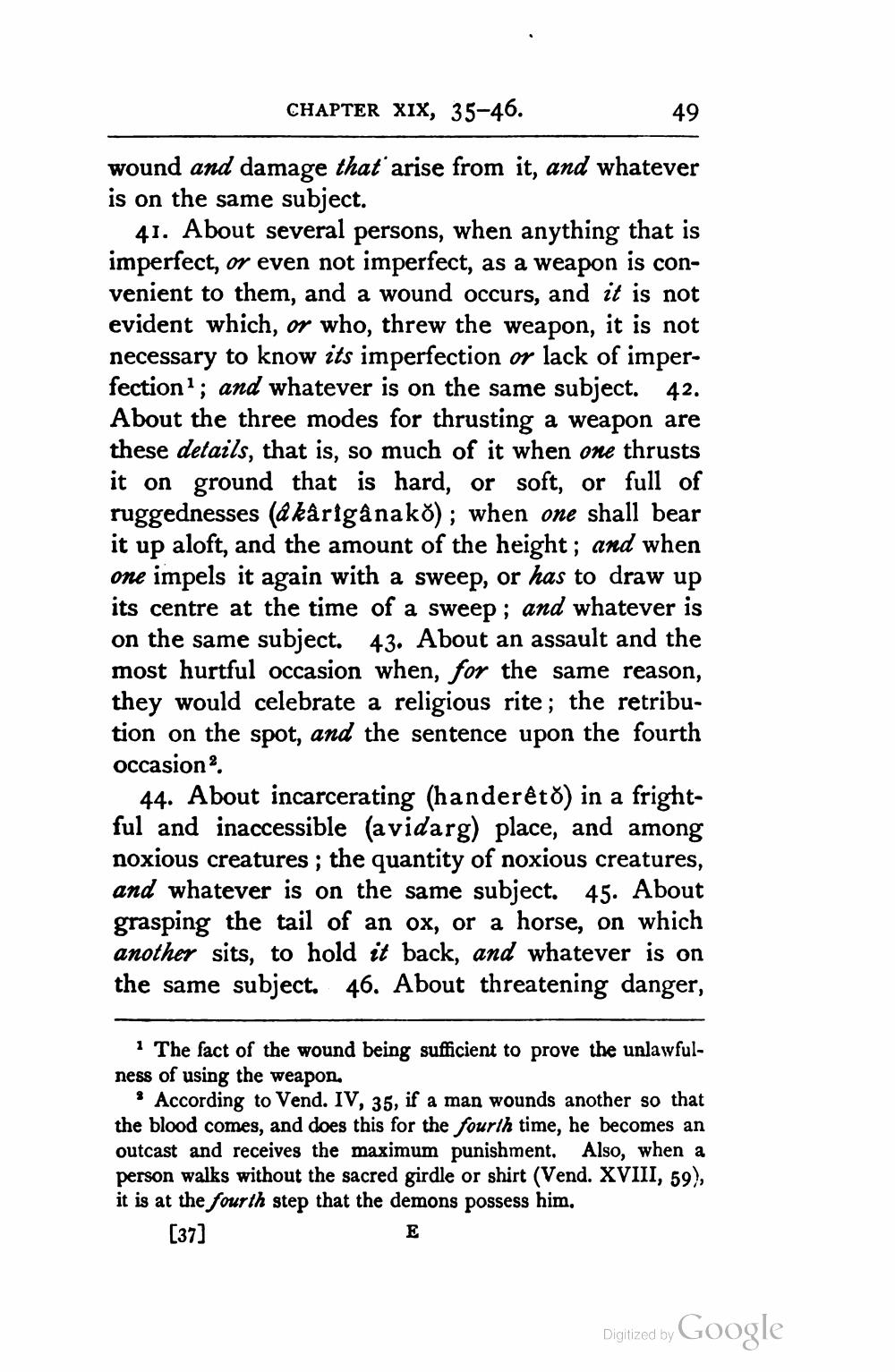________________
CHAPTER XIX, 35-46.
wound and damage that arise from it, and whatever is on the same subject.
41. About several persons, when anything that is imperfect, or even not imperfect, as a weapon is convenient to them, and a wound occurs, and it is not evident which, or who, threw the weapon, it is not necessary to know its imperfection or lack of imperfection1; and whatever is on the same subject. 42. About the three modes for thrusting a weapon are these details, that is, so much of it when one thrusts it on ground that is hard, or soft, or full of ruggednesses (a kârigânako); when one shall bear up aloft, and the amount of the height; and when one impels it again with a sweep, or has to draw up its centre at the time of a sweep; and whatever is on the same subject. 43. About an assault and the most hurtful occasion when, for the same reason, they would celebrate a religious rite; the retribution on the spot, and the sentence upon the fourth occasion 2.
it
49
44. About incarcerating (handerêtŏ) in a frightful and inaccessible (avidarg) place, and among noxious creatures; the quantity of noxious creatures, and whatever is on the same subject. 45. About grasping the tail of an ox, or a horse, on which another sits, to hold it back, and whatever is on the same subject. 46. About threatening danger,
1 The fact of the wound being sufficient to prove the unlawfulness of using the weapon.
According to Vend. IV, 35, if a man wounds another so that the blood comes, and does this for the fourth time, he becomes an outcast and receives the maximum punishment. Also, when a person walks without the sacred girdle or shirt (Vend. XVIII, 59), it is at the fourth step that the demons possess him.
[37]
E
Digitized by
Google




